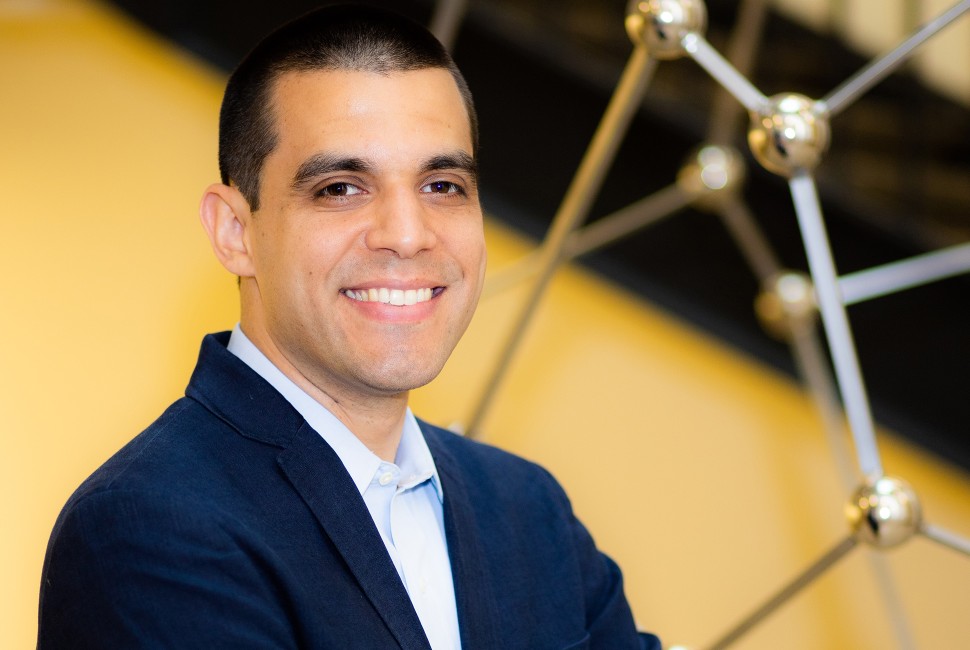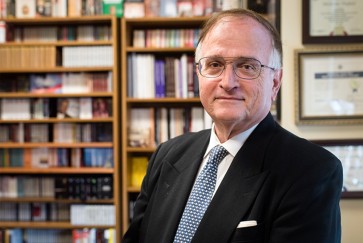Engineer Jeffrey Lopez and mathematician Ananth Shankar have received the prestigious Faculty Early Career Development (CAREER) Award from the National Science Foundation (NSF), the foundation’s most prestigious honor for junior faculty members.
Lopez is an assistant professor of chemical and biological engineering at the McCormick School of Engineering. He will receive $623,708 over five years from NSF’s Division of Chemical, Bioengineering, Environmental, and Transport Systems.
Shankar is an assistant professor of mathematics in Weinberg College of Arts and Sciences. He will receive $494,290 over five years from NSF’s Division of Mathematical Sciences.
The CAREER Award is designed to support promising young faculty members who exemplify the role of teacher-scholar through the combination of outstanding research and education.
Jeffrey Lopez: improving energy storage
Lopez and his research group are working to improve the performance of energy storage devices and to make battery manufacturing and recycling processes more sustainable. Their goal is to identify and understand molecular phenomena that can be utilized to design and develop new materials that address challenges related to enabling next-generation battery chemistries.
As the transition to electric vehicles and an increase in grid scale storage drive a dramatic increase in the utilization of energy storage devices, Lopez and his colleagues are interested in creating materials that can support clean energy goals with lower cost, improved safety and a reduced impact on the environment.
With his CAREER award, titled “Identifying Reaction Mechanisms for the Formation of Stable Interphases in Lithium Metal Batteries,” Lopez will work to clarify the electrolyte reaction mechanisms that underpin solid electrolyte interphase (SEI) formation on lithium metal electrodes in high coulombic efficiency electrolytes and use this fundamental understanding to design and evaluate new fluorine-free electrolytes. This project will use newly developed spectroscopy approaches to identify the structure and role of radical intermediates and organic electrolyte decomposition products. Fluorine-free electrolytes will help contribute to reducing the global use of PFAS compounds, which are commonly used in state-of-the-art battery electrolytes.
Lopez’s work will be paired with educational and outreach activities to address the issues of underrepresentation in STEM education through longitudinal mentoring relationships. This project will design and implement a Sustainability Ambassadors program, a cohort-based program for one-on-one mentoring with Northwestern undergraduate students and Chicago Public School high school students.

Ananth Shankar: number theory, arithmetic geometry
Shankar’s research is in number theory and arithmetic geometry, focusing mainly on Shimura varieties and abelian varieties. He studies the arithmetic of polynomial equations and their solutions, i.e. polynomial equations with integer and rational coefficients.
Shankar’s CAREER project is titled “Algebraicity and Integral Models of Shimura Varieties.” With the NSF support, Shankar and his collaborators will work on the fundamental problems of studying integral models and the p-adic geometry of Shimura varieties.
Shimura varieties are geometric spaces that are defined as solutions to polynomial equations with rational coefficients. Shimura varieties have played a crucial role in settling several long-standing conjectures, including the Mordell conjecture. Shankar and his team will work on the question of finding polynomial equations with integer coefficients which define Shimura varieties. This question is fundamental to the study of number theory and arithmetic geometry and has broad applications to folklore conjectures.
In addition to mentoring graduate and undergraduate students, Shankar plans to organize an “arithmetic geometry bootcamp.” The target audience will be graduate students who have passed their qualifying exams. The aim will be to get these students in a place where they are ready to start reading papers in the field and thinking about research and thesis problems.


